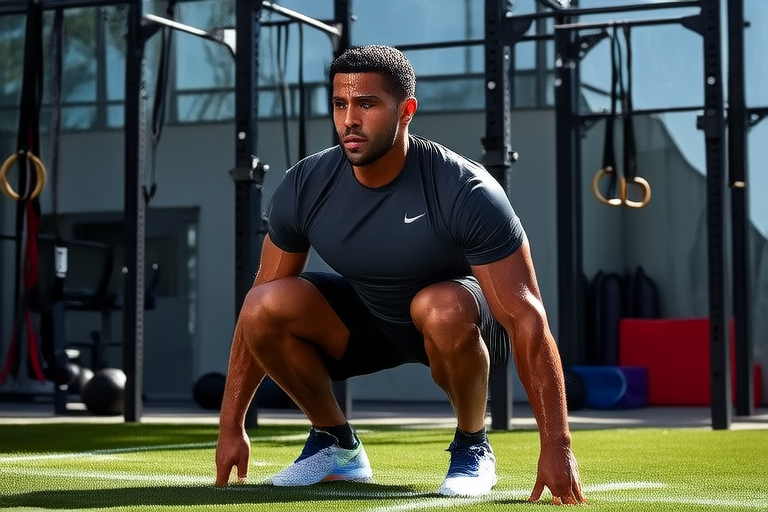Enhancing Performance: Sports Science Insights and Essential Precautions
In the world of competitive sports and fitness, the quest for peak performance is relentless. Athletes and fitness enthusiasts alike are constantly seeking ways to optimize their abilities and push their limits. Sports science plays a pivotal role in this pursuit, offering a comprehensive understanding of the physiological, psychological, and nutritional factors that contribute to enhanced performance. However, alongside these advancements, it is crucial to prioritize safety and well-being to prevent injuries and ensure longevity in one’s athletic career.
Physiological Adaptations: Training the Body for Peak Performance
The impact of training on the human body is profound, leading to significant physiological adaptations that can elevate performance. Muscle strength and endurance are improved through resistance training, which triggers muscle hypertrophy and increased mitochondrial density. Cardiovascular training enhances heart function, increasing stroke volume and cardiac output, thereby improving oxygen delivery to muscles. Metabolic training, such as high-intensity interval training (HIIT), improves the efficiency of energy production within cells, allowing athletes to sustain higher levels of exertion for longer periods.
Understanding these adaptations allows coaches and athletes to design more effective training programs. For instance, incorporating a variety of exercises that target different muscle groups ensures balanced development and reduces the risk of overuse injuries. Similarly, periodization, a structured approach to training that alternates between phases of high and low intensity, helps athletes maintain peak performance without burning out.
Mental Strategies: The Psychology of Success
While physical training is vital, the psychological aspect of performance cannot be overlooked. Mental strategies such as visualization, mindfulness, and goal-setting play a crucial role in enhancing athletic performance. Visualization involves mentally rehearsing successful performances, which can improve confidence and reduce anxiety. Mindfulness practices help athletes stay present and focused during competition, reducing distractions and enhancing concentration. Goal-setting provides direction and motivation, helping athletes stay committed to their training regimen.
Coaches and trainers can incorporate these strategies into their programs by encouraging athletes to practice visualization techniques before competitions and during downtime. Mindfulness exercises, such as deep breathing or meditation, can be integrated into daily routines. Setting both short-term and long-term goals, with clear milestones, helps athletes track progress and maintain motivation.
Nutrition: Fueling the Body for Optimal Performance
A balanced diet rich in nutrients is essential for maintaining energy levels, supporting recovery, and enhancing performance. Carbohydrates provide the primary source of energy for high-intensity activities, while proteins support muscle repair and growth. Healthy fats contribute to overall health and aid in nutrient absorption. Hydration is equally important, as even mild dehydration can impair performance and increase the risk of injury. Timing meals relative to workouts can also impact performance; consuming a carbohydrate-rich meal a few hours before exercise provides sustained energy, while a protein-rich snack post-workout aids in muscle recovery.
To ensure optimal nutrition, athletes should consult with a registered dietitian who can create a personalized meal plan based on individual needs and goals. Incorporating a variety of whole foods, including fruits, vegetables, lean proteins, and healthy fats, ensures a well-rounded diet. Additionally, staying hydrated throughout the day and adjusting fluid intake based on activity level and environmental conditions is crucial.
Recovery Methods: Restoring the Body and Mind
Recovery is just as important as training when it comes to optimizing performance. Adequate sleep is essential for muscle recovery, cognitive function, and overall health. Active recovery techniques, such as light stretching, yoga, or swimming, promote circulation and reduce muscle soreness. Rest days are necessary to allow the body to recuperate fully, preventing overtraining and reducing the risk of injury.
Coaches and athletes should prioritize sleep hygiene, ensuring adequate rest each night. Integrating active recovery sessions into training programs can help alleviate muscle tension and improve flexibility. Encouraging athletes to listen to their bodies and take rest days when needed is crucial for long-term success.
Essential Precautions: Injury Prevention and Safety Measures
Injury prevention is paramount in any training program. Proper warm-up and cool-down routines are essential to prepare the body for exercise and facilitate recovery afterward. Warm-ups should include dynamic stretches and light cardio to increase blood flow and raise core temperature. Cool-downs should focus on static stretching and relaxation techniques to reduce muscle stiffness and promote recovery.
Listening to one’s body is perhaps the most critical precaution. Athletes should pay attention to signs of fatigue, pain, or discomfort and adjust their training accordingly. Overlooking these signals can lead to more severe injuries and prolonged recovery times. Seeking professional advice from healthcare providers or sports medicine specialists when necessary can prevent minor issues from becoming major setbacks.
In conclusion, enhancing performance in sports and fitness requires a holistic approach that encompasses physiological adaptations, psychological strategies, proper nutrition, and effective recovery methods. By integrating these elements into training programs and prioritizing safety, athletes and fitness enthusiasts can achieve their full potential while maintaining long-term health and well-being. Embracing the principles of sports science not only leads to better performance but also fosters a sustainable and enjoyable journey towards personal excellence.










